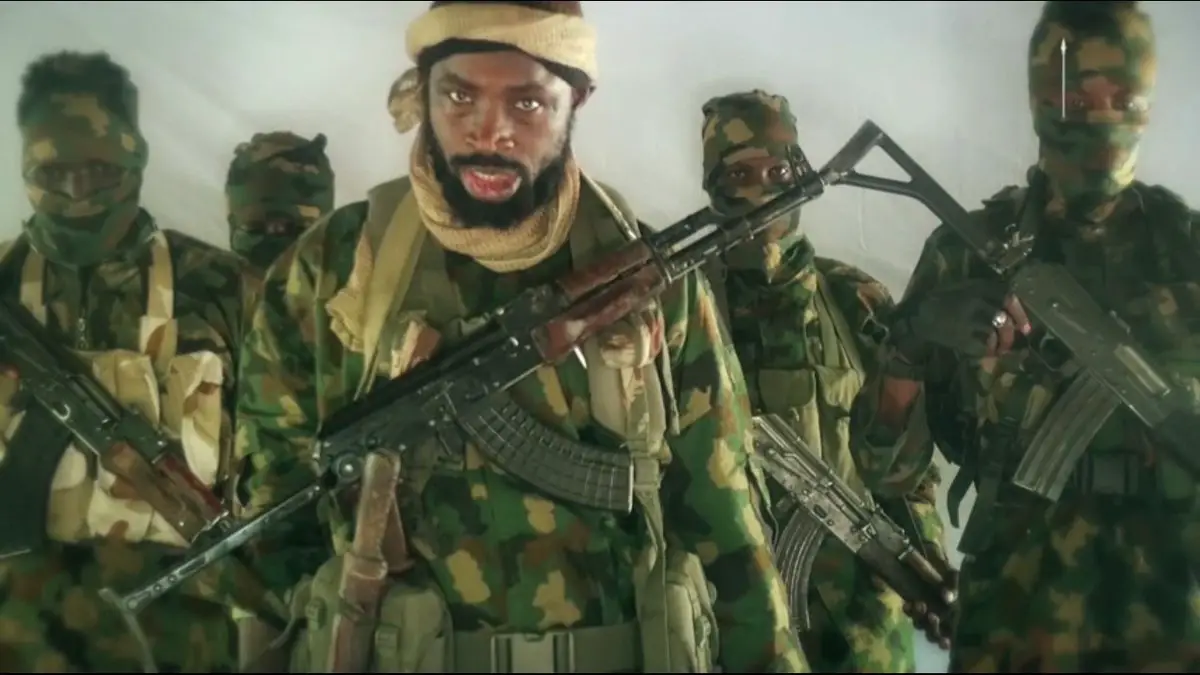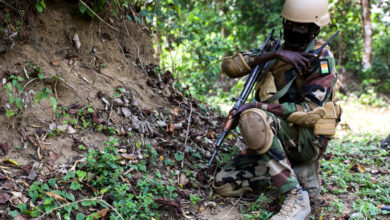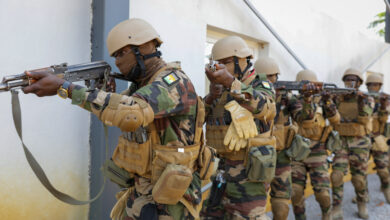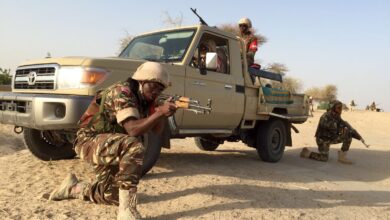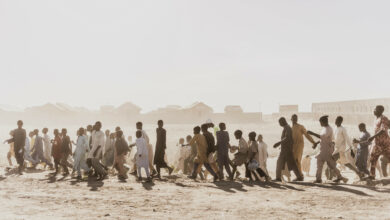Boko Haram militants abducted around 50 loggers near the northeastern Nigerian town of Gamboru close to the border with Cameroon, civilian militia and residents told AFP on Thursday, November 22.
The hostages who are mostly from a camp for people displaced by jihadist violence were on Saturday rounded up by militants while collecting wood at Bulakesa village, 25 km (15 miles) from Gamboru in Borno state.
According to AFP, the fighters were loyal to Boko Haram faction leader Abubakar Shekau.
“The men were rounded up and taken away by Boko Haram insurgents and nothing has been heard from them,” militia leader Umar Kachalla said.
“Two of the loggers escaped and returned home and broke the news.… We don’t have a precise number of those taken but usually the loggers move in a group of more than 50 men,” Kachalla said.
The loggers were encouraged to venture deep into the bush to collect firewood by a recent military operation that pushed the jihadists out of the area, another militia member Shehu Mada said.
“We believe the number of the those abducted exceeds 50,” said Gamboru resident Babagana Musa.
The story was slow to emerge due to limited communications with Gamboru residents. The area has for several years been without telecom facilities following the destruction of telecom masts in Boko Haram attacks, forcing residents to rely on Cameroon mobile phone networks.
Frequent attacks around Wulgo forest
Gamboru loggers have suffered repeated Boko Haram attacks and abductions especially around Wulgo forest, a known Boko Haram hideout.
Last month troops dislodged the militants from the nearby town of Wulgo and surrounding areas following incessant attacks on loggers.
“The general assumption was that the insurgents had left the area only to suddenly appear and encircle the loggers,” Mada said.
Some of the loggers joined the team to collect metals from the shells of vehicles destroyed in the military offensive against the fighters, he said.
In April militants gunned down 18 loggers at the edge of Wulgo forest, 15 km from Gamboru, and in January at least 31 loggers went missing and were believed to have been abducted by the jihadists near Wulgo, where 10 loggers were killed two weeks before.
In August 2014 the group seized Gamboru, a trading hub, along with the neighbouring town of Ngala. Nigerian troops retook both towns in September 2015 with the help of Chadian forces following offensives lasting months.
Despite the recapture of the area which saw residents moving back, Boko Haram fighters continue to launch sporadic attacks, ambushing troops and vehicles, as well as attacking and abducting farmers.
More than 27,000 people are thought to have been killed in the Boko Haram nine-year insurgency that has triggered a humanitarian crisis and left 1.8 million people without homes.
Most of those displaced by the unrest rely on food handouts from aid agencies while others have turned to felling trees in the arid region for firewood which they sell to buy food.
The jihadists have increasingly targeted loggers and farmers, accusing them of spying and passing information to the military and the local militia fighting them.
On Monday they killed nine farmers and abducted 12 others when they opened fire as they worked on their fields outside Mammanti village, near the Borno state capital Maiduguri.
On Thursday, eight people were killed in an attack on French drilling company Foraco’s water well drilling camp in southeastern Niger that was blamed on Boko Haram.
The jihadist group has lately intensified its armed campaign, launching a number of major assaults in Nigeria’s remote northeast region, amid signs of a takeover by more radical leaders.
Boko Haram split into two factions in mid-2016 over ideological differences, but a recent video posted by Abubakar Shekau hints at a possible reconciliation with the faction led by Abu Mus’ab Al-Barnawi and known as Islamic State West Africa Province.
Shekau’s faction is notorious for suicide bombings and indiscriminate killings of civilians, while the Barnawi faction largely focuses on attacking military and government targets.
Shekau has pledged allegiance to ISIS leader Abu Bakr Al-Baghdadi, but ISIS central gave its formal backing only to ISWAP.
The upsurge in attacks has been seen as a sign of a hardline takeover in the ISWAP faction by more radical lieutenants and have stretched the army at a time when troops are complaining of fatigue.
With reporting from AFP

